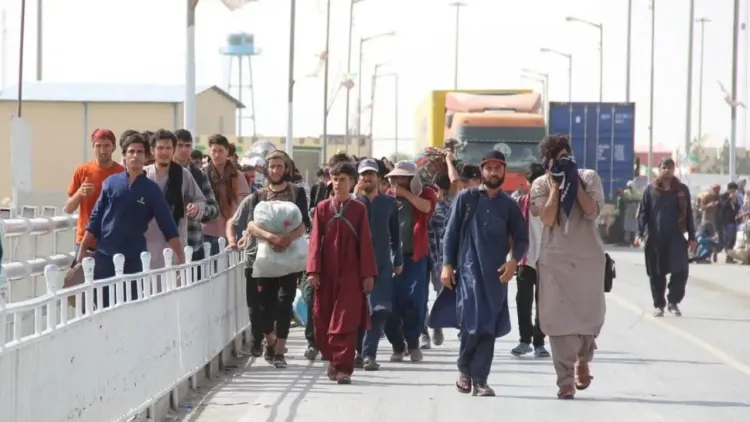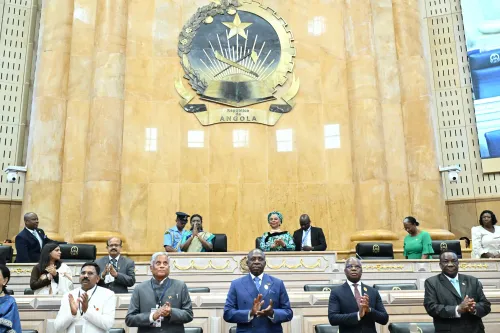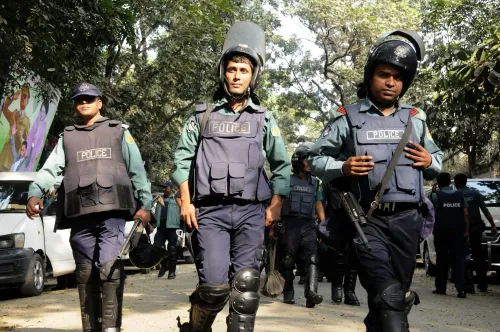Pakistan to Ramp Up Deportation of Afghan Refugees After Eid Holidays

Synopsis
Key Takeaways
- Pakistan to increase deportations of Afghan refugees.
- March 31 deadline for voluntary return has passed.
- Authorities claim no extension of the deadline.
- UNHCR expresses concern for Afghan refugees needing protection.
- International organizations condemn Pakistan's deportation policies.
Islamabad, April 3 (NationPress) Pakistan is preparing to intensify the deportation of Afghan refugees following the Eid holidays, as the March 31 deadline for refugees, including holders of Afghan Citizen Cards, to voluntarily return to their homeland has lapsed, according to local media reports on Thursday.
Sources indicate that the repatriation process could not formally commence due to the Eid holidays. The two-day break for Eid led to some uncertainty within official circles, with certain reports suggesting an extension of the deadline for repatriation.
However, an official from Pakistan's interior ministry refuted these claims, asserting that no extension has been granted.
"Although the deadline was March 31, the provincial government extended it until April 2, considering Eid. Now, phase 2 will commence from [Thursday], and we have set up camps, one at Landi Kotal and another on Nasir Bagh Road," a senior official from the Afghan Commissionerate in Peshawar was quoted by Pakistan's prominent newspaper Dawn.
The Pakistani government has indicated the initiation of forced removals of Afghan refugees and warned of stringent legal consequences for those who do not depart by the deadline. As of April 1, a total of 886,242 undocumented Afghan nationals have exited Pakistan, with repatriations ongoing, as reported by another Pakistani daily, The Express Tribune, citing official statistics.
Authorities in Pakistan have remained firm despite international appeals to prolong the deadline. The government has disregarded concerns raised by the UN High Commissioner for Refugees (UNHCR) and other organizations regarding the mass repatriation of Afghan refugees and asylum-seekers.
UNHCR spokesperson Qaiser Khan Afridi expressed concern over the government's directive, noting that some Afghan Citizen Card holders may need international protection.
“In that context, we urge the government to consider their situation with a humanitarian perspective. We also advocate for dialogue between Pakistan and Afghanistan to ensure that returns are conducted in a dignified and voluntary manner,” Afridi stated.
The Afghan Taliban government called on Islamabad to refrain from commencing the deportation of Afghan nationals. Mawlavi Abdul Kabir, Afghanistan's Minister of Refugees and Repatriation, appealed to neighboring countries, Pakistan and Iran, to suspend these deportations and allow Afghans to return home voluntarily.
"He stressed the importance of humane treatment for refugees, particularly in light of reports detailing the mistreatment of Afghans by border countries, including instances of deportation of individuals with legal visas," reported the Afghan government-run Bakhtar News Agency.
Pakistan's deportation policy has faced criticism from numerous international organizations, raising concerns over the severe risks refugees encounter upon their return amid the prevailing uncertainties in Afghanistan.
Previously, the US-based advocacy group Human Rights Watch (HRW) condemned Pakistan for the "forced" deportation of Afghan refugees.
"Pakistani officials should immediately cease the coercion of Afghans to return and provide those at risk of expulsion the chance to seek protection,” stated Elaine Pearson, Asia Director at Human Rights.









